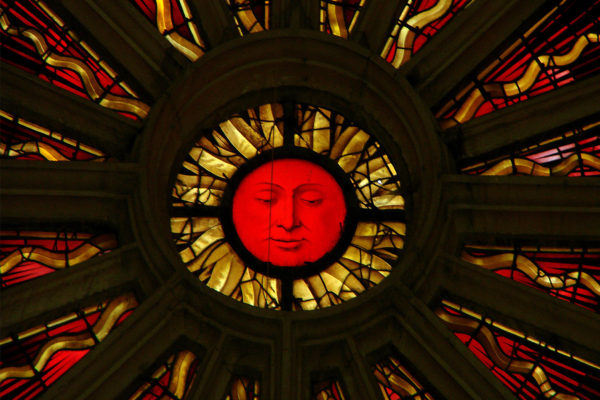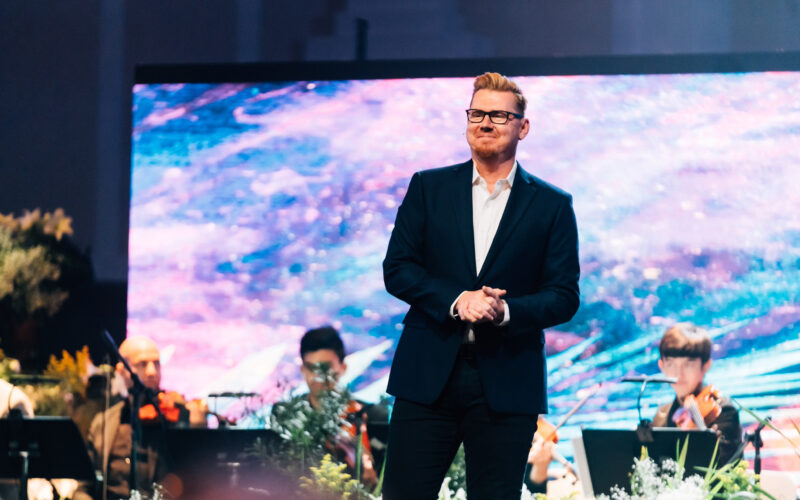I find myself, in this stage of my life, learning many things from children’s books. Dr. Seuss’s How the Grinch Stole Christmas is one of my son’s favorites. It’s always a meaningful lesson, but the Grinch seems particularly on-the-nose this year. I imagine the virus as some green monster lurking nearby to take away everything we use to celebrate advent and Christmas. No feasts or warm parties. No picture with Santa, no group sings, no travel, no big gatherings of family, no packed church services or big pageants. Caroling door to door is bioterrorism this year.
This year, because of the bio-Grinch, Christmas isn’t going to come from a store. But what if Christmas…perhaps…means a little bit more?
My son and wife can’t wait for Christmas to come. Well, maybe they can’t wait or maybe they can. We’ll never know. What’s certain is that they will not wait. On Monday this week, I came home from work to them making gingerbread cookies and singing the chorus of “We Need a Little Christmas” at top volume over and over again.
I, personally, try to celebrate advent in the home, to practice waiting for the coming of Christ, so I started shouting over the singing—“No! It’s not Christmas yet!” but they only sang more loudly. What’s worse, they’ve gone on the offensive. I woke my son up on Tuesday, and before he spoke a word to me—we’re sitting in his rocking chair—he smiles mischievously, opens his eyes, and starts singing “We need a little Christmas, right this very minute!”
But, as much as I’m against their premature celebrations, I understand the urgency this year. I have a deep feeling this year that the world needs to move on. It started with Fall: I was wearing sweaters in October this year, not because I needed them in New Orleans, but because I needed the season’s change. I voted early. I’ve been eating dinner at five. I’m looking at the New Year like dogs look at treats before you let them have it.
The last thing I want to do this year is stop and wait, and so this year I think I’m finally waiting the way we’re meant to wait during advent. I’m finally understanding, at least more so, the brightness of Christ’s second coming, here in the darkness of this year.
Traditionally, the first Sunday of advent is centered on hope, and this year, especially, that’s an important topic; because this year has been marked by hopelessness. Especially in March, when everything in New Orleans shut down over the course of a few days, I saw a lot of people lose hope.
For me, personally, I had big hopes about my first year as a pastor. My wife and I have been hoping for years that this year, when she graduated with her degree, would be the year we really found healthy rhythms of work and life, financial stability, mental and physical health. We had resolved to see our families more and go on more dates, even take a cruise for our anniversary. It’s like we had put up lights all over our mental space, and this year, it’s seemed like the grinch came and unscrewed our little lights and put them in his bag. One by one, in every place I looked where I was expecting some kind of celebration of life and light, there was just darkness.
And ministerially, I got a question over and over again about where God has been in all of this darkness this year. People have been feeling like he has turned his face away, and the sun had disappeared from the sky. And understandably, a lot of people have lost hope.
But in our hopelessness this year, we’ve forgotten something—perhaps we’ve forgotten our Dr. Seuss. Christmas lights are a good picture of the light of Christ shining in the darkness, and they feel good, but take them down and you haven’t done anything at all to Christmas itself. And the things we were hoping for this year, the wishes we had of what we were hoping to accomplish and who we were hoping to be by the end of it—those hopes are nice, they feel good, but take them down, and you haven’t done anything at all to hope, itself, in Christianity. Hope in Christianity is founded upon the resurrection of Christ and upon his return, bringing his kingdom to fullness. This advent season, we need to remember, nothing at all has happened to the gospel this year. Jesus’ life, his death in your place, his resurrection, his return—they’ve all remained the same.
I’m not trying to minimize at all the difficulty of this year. In fact, I’m trying to do the opposite. I’m trying to say that all of life is difficult. I can hope all I want to, that the new year will change the course of the world just by changing the calendar, but I know it won’t. The world will still be broken and mired in sin. If you find in yourself a longing for a world in which people live at peace with each other, with no more viruses or sickness, no more pain or loss, you have to realize you’re not longing for a new year; you’re longing for a new world.
Don’t think this year that because your hopes were dashed you’re now hopeless. This year has stolen a lot of small lights from us, but the sun is still going to rise. Jesus Christ, light of the world, will make his face to shine on us again.
This is why we celebrate advent every year, why every year we repeat the same promises of hope. Because even though some years are good years, where the sun shines on us, and we grow and thrive and produce more than we even thought possible. And some years are bad years, when all of our little hopes are taken down and snuffed out before their time. But every year, we are able to remember that Jesus is coming soon, and so every year we can have hope that very soon sickness, and sorrow, and loss will be memory, because Christ is able to turn back sin and death itself.
This is the nature of hope in Christianity. It doesn’t grow dimmer as the days grow longer and darkness seems as though it is going to conquer the light. It doesn’t depend upon the economy or the election. It doesn’t even change with our circumstances, whether we are better or worse than last year, richer or poorer, in sickness or in health. Even if every other light in our life goes out, or is taken from us, still we have reason to sing, reason to pray and hope. Because Christ is coming soon, like the dawn.




Comment(1)
David E. Crosby says
November 29, 2020 at 12:47 pmGreat job, Alex. You encourage me!